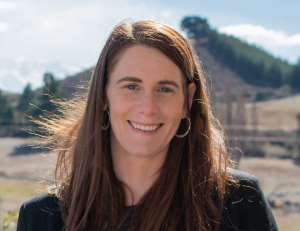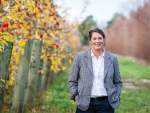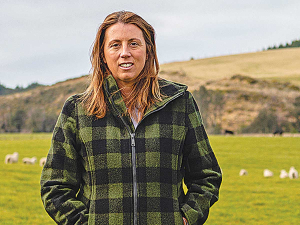Kate Scott has been appointed the next chief executive officer of Horticulture New Zealand (HortNZ).
Scott will attend the HortNZ conference in Mount Maunganui this week and be formally introduced at a networking event on 28 August. However, she starts in her new role on October 27.
Scott has been working in agribusiness for 20 years and has significant experience in resource management, environmental policy and planning and stakeholder engagement.
She is currently executive director of environmental consultancy Landpro, chairs the New Zealand Rural Leadership Trust and is deputy chair of Thriving Southland. Scott was a Nuffield scholar in 2018 and was a recipient of the Rabobank Australasian Emerging Leader award last year.
Her qualifications include a Bachelor of Arts (Geography & Political Science) degree from Victoria University. She completed the Leading Professional Service Firms programme at Harvard Business School and the Institute of Directors Governance Development Programme.
Barry O’Neil, chair of HortNZ, says Scott is a strong and effective leader, a collaborative relationship builder and a practical problem solver.
“The calibre of candidates for the CEO role was exceptional. Kate stood out for her energy and ability to not only deliver on our strategy and priorities, but also look for opportunities for wider collaboration.
“She is also experienced in leading organisations and people, fostering a strong sense of team and enabling those she works with to succeed.
“I am confident Kate will navigate the sector's complexities and be able to unpick and understand the key issues while remaining focused on delivering results that will make a difference for growers and the wider horticulture industry.”
O’Neil also paid tribute to departing chief executive Nadine Tunley.
“Nadine has been amazing in the CEO role. She has always been connected, always looking for the best horticulture and organisational outcomes, and encouraging us to find a better way of working.
“She led us through some rough times, including the pandemic, the labour crisis because of the closed borders and Cyclone Gabrielle. We wish her all the best for the next stage of her career.”
Michelle Sands, HortNZ general manager strategy and policy, will stand in as interim chief executive until Scott starts.



















